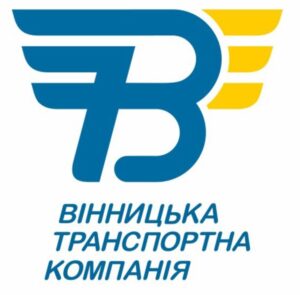
Schneider Electric, a leader in digital transformation in the field of energy management and automation, and the OKKO filling station network have implemented a large-scale project for uninterrupted power supply and infrastructure reliability – 290 out of 410 filling stations of the network will be equipped with uninterruptible power supplies (UPS) with modern powerful batteries in 2022-2024, and in 2025 it is planned to equip another 50 filling stations of the network with the same UPS.
The equipment chosen by OKKO is designed to protect the power supply in the most unstable conditions. Schneider Electric lithium-ion UPS has a long service life without battery replacement (up to 12-15 years), long autonomy time with its compact dimensions and ease of maintenance.
“Even before the large-scale blackouts, OKKO started implementing a plan to modernize the corporate data network. We realized that we needed efficient equipment that would ensure the smooth operation of all vital filling station systems – cash registers, fuel dispensers, equipment providing Wi-Fi and other customer services. We started looking for the right powerful equipment, analyzing the world’s experience. The solution from Schneider Electric provided the result we needed. In fact, regardless of power outages at OKKO filling stations, customers will not face delays in payments or lack of Wi-Fi,” said Sergiy Lesko, CIO of OKKO.

“Schneider Electric has deep experience in technologies and practices that can improve energy efficiency and sustainability, understands and carefully studies the specific needs of each Ukrainian customer,” said Volodymyr Dokhlenko, Head of Secure Power at Schneider Electric in Ukraine, Czech Republic and Slovakia, ”As part of this project, our client received uninterrupted power supply to the filling station for up to 5 hours, as well as the preservation of critical data and round-the-clock monitoring of the UPS network.”
The UPS network monitoring system is provided by the equipment supplier. Thanks to predictive analytics of the UPS operation status and notifications about the need to replace it soon, service work is carried out in a timely manner, minimizing the risk of downtime.
About OKKO
The OKKO filling station network is one of the largest filling station networks in Ukraine (as of the beginning of 2025 – 410 filling stations). The company also has a network of on-the-go catering establishments, stationary and mobile laboratories for quality control of petroleum products, etc.
The company is one of the largest taxpayers in the fuel market. Based on the results of operations in 2024, the companies of OKKO Group paid a total of UAH 21.1 billion in taxes to the budget and state funds. This is UAH 5.6 billion, or 36%, more than in 2023.
About Schneider Electric
Schneider’s purpose is to create impact by empowering everyone to make the most of our energy and resources, ensuring progress and sustainability for all. We call it Life Is On.
Our mission is to be a trusted partner in sustainability and efficiency.
We are a global technology leader, bringing world-class expertise in electrification, automation and digitalization to smart industries, reliable infrastructure, future-proof data centers, smart buildings and intuitive homes. Drawing on our deep industry expertise, we provide integrated end-to-end AI-enabled industrial IoT solutions with connected products, automation, software and services, creating digital twins to drive profitable growth for our customers.
Ourmain resource is our 150,000 employees and more than a million partners operating in more than 100 countries to ensure proximity to our customers and stakeholders. We support diversity and inclusion in everything we do, guided by our meaningful purpose of a sustainable future for all.

KP “Vinnitsa transport company” on March 26 announced a tender for services on insurance of carrier’s liability for damage caused to the life and health of passengers and luggage during transportation by road transport (with more than 18 passengers) and on urban electric transport.
According to the message in the system of electronic public procurement Prozorro, the expected cost of the purchase of services is 2.960 million UAH.
The deadline for submission of proposals is April 3.
liability insurance, TENDER, Vinnytsia Transportation Company

Norway is providing an additional NOK1 billion ($95 million) to finance gas imports to Ukraine to ensure adequate supplies for households, businesses and industry in the country, the Norwegian government said on Wednesday.
“A more secure energy supply is essential for Ukraine’s resilience. This was one of the topics discussed during President Zelensky’s visit to Norway last week. There is an urgent need to increase funding for gas imports to provide electricity and heating for homes, businesses and public institutions. Norway is doing its part to meet this need,” said Prime Minister Jonas Gahr Støre.
The new financing will be channelled through the European Bank for Reconstruction and Development (EBRD) and will be used to purchase gas from Western sources. The recipient of the gas will be the Ukrainian state-owned company Naftogaz. The imported gas will be used to meet consumption needs and increase gas reserves in case of further attacks on gas infrastructure. The financing is provided under the Nansen Support Program for Ukraine, and NOK1 billion is taken from the 2025 energy sector allocation for Ukraine.
“Access to electricity is essential to ensure the security of the Ukrainian people and to ensure the continued functioning of society. The attacks on Ukraine’s energy supply are and have been an attack on the very core of Ukrainian society. They are part of an attempt to weaken the Ukrainian economy and undermine the confidence of the Ukrainian people in their government. That is why it is crucial and strategic to help preserve access to gas,” said Foreign Minister Espen Barth Eide, who is visiting Ukraine this week.
The additional allocation will bring Norway’s total contribution to Ukraine’s gas purchases from 2022 to NOK3.6 billion ($342 million). In 2023, NOK635 million was allocated for gas purchases. The funds have already been released and can be used to increase the total contribution. Thus, the total amount of the agreement is NOK1.635 billion ($155 million).
“We don’t know yet how much gas Ukraine will need to import this year, but Norway’s contribution will enable Ukraine to better cope with the consequences of new attacks from Russia and make the necessary preparations for next winter,” Eide said.
The EBRD has been cooperating with Naftogaz for several years, in particular on corporate governance. Channelling funds through the EBRD helps to reduce risks, such as the risk of corruption and financial irregularities, the statement said.
As reported, Ukrainian Prime Minister Denys Shmyhal on Wednesday discussed joint humanitarian programs and sanctions against Russia with Norwegian Foreign Minister Espen Barth Eide and Norwegian Minister of Labor and Social Inclusion Tonje Brenna. The prime minister also thanked Norway for its assistance in the energy sector, in particular for its readiness to make a EUR140 million contribution through the EBRD for the purchase of gas for Ukrainian gas storage facilities.

Industrial production in Ukraine increased by 3.6% in 2024, while in 2023, according to revised data, the growth was 6.8% after a 36.7% drop in 2022, the State Statistics Service (Ukrstat) reported on Wednesday.
At the same time, according to the State Statistics Service, industrial production in Ukraine decreased by 3.3% in December 2024 compared to December 2023, and by 0.4% in November.
The State Statistics Service reminds that last year, from January to May, industrial production grew: after a jump of 17.2% in January, the recovery slowed to 3.6% in May, in the summer, a decline was recorded from 0.3% in June to 1.5% in July and 4.3% in August, after which it was followed by a slight increase of 1.3% and 0.9% in September and October, respectively.
According to the statistics agency, in 2024, industrial production in mining and quarrying increased by 3.3%, in manufacturing by 5.3%, while the supply of electricity, gas and steam decreased by 2.7% due to a 6.3% drop in electricity production, although gas production increased by 5%.
It is noted that the production of metal ores grew the most – by 23.0%, other minerals and quarrying – by 16.3%, while oil and gas – by only 0.7%, and coal – decreased by 11.7%.
In manufacturing, the largest growth was recorded in metallurgy and production of metal products – 22.5%, clothing production – 19.6%, and furniture – 7.3%. The production of food, beverages and tobacco products increased by 6.2%, textiles by 4.7%, rubber and plastics by 3.4%, pharmaceuticals by 1.9%, and paper and paper products by 1.4%.
At the same time, machine building in 2024 fell by 1.2%, woodworking by 8.8%, chemical production by 9.9%, automotive by 17%, and production of computers, electronic and optical products by 19%.
In nominal terms, in 2024, Ukraine sold industrial products (goods and services) worth UAH 3.657 trillion, which is 11.8% more than in 2023, including UAH 680.3 billion worth of exports (an increase of 24.4%).
In total sales of industrial products in 2024, the manufacturing industry accounted for the largest share (59.9% vs. 56% in 2023), supply of electricity, gas, steam and air conditioning (27.2% vs. 31.2% in 2023), mining and quarrying (remained at 11.7%), and water supply, sewerage and waste accounted for another 1.2% (1.1%).

Ukraine needs to import 4.5-4.6 billion cubic meters of natural gas by November 1 of this year before the start of the next heating season.
This was announced by Dmytro Abramovich, a member of the Board and Commercial Director of Naftogaz Group, at a meeting of the Verkhovna Rada Committee on Energy, Housing and Utilities on Wednesday.
“Naftogaz is already contracting for April, May and the following months, we are not stopping, realizing that by November 1 of this year, if we want to reach the balance sheet indicators comparable to last year, we need 4.5-4.6 billion cubic meters of gas,” he said.
According to the commercial director, Naftogaz has already imported almost 800 million cubic meters of gas in February-March this year.
“This is a technological import, because it cannot be said to be for final consumption – another resource is commercially consumed – but this resource was necessary for balancing the system and daily withdrawal,” Abramovich explained.
According to the company, Ukrainian consumers consumed 14.86 billion cubic meters during the heating period in November-March 2024-25, while the balance plan of the Ministry of Energy of Ukraine was 14.73 billion cubic meters. At the same time, the level of consumption was 680 million cubic meters or 5% higher than in the same period in 2023-24.
According to the commercial director, during the last heating season, Ukraine also lost 700 million cubic meters of its own gas production as a result of Russian shelling.
“We lost almost 700 million cubic meters of gas during the heating season for obvious reasons. Until February 1, we were doing better than planned according to the country’s balance sheet, but the shelling happened and we lost a very large part of production,” he said.
According to Abramovich, Ukraine is also planning to reach 500 million cubic meters less gas reserves in underground gas storage facilities (UGS) during the current heating season than planned in the balance sheet.
At the same time, gas consumption in 2025 in the country will be comparable to last year and will amount to 20.6-20.8 billion cubic meters.
“We see this in the trend, in the current consumption dynamics, so the main task is to work on energy saving and on the restoration of production and continue imports,” summarized the commercial director.
As reported with reference to Prime Minister Denys Shmyhal, the European Bank for Reconstruction and Development (EBRD) on Wednesday approved a loan for Naftogaz of Ukraine for the purchase of natural gas for the next two heating seasons in the amount of up to EUR270 million. Additionally, about EUR140 million in grants from the Norwegian government will be channelled through the EBRD.
According to Shmyhal, this resource will help Ukraine accumulate gas reserves in underground storage facilities for the next heating season.

The volume of freight traffic in January-December 2024 increased by 7.8% compared to the same period of 2023 – up to 354 million tons.
Such preliminary data was reported by the State Statistics Service (Gosstat). According to its data, cargo turnover for the year increased by 13% – up to 184581 million tons/km.
In addition, the number of transported passengers in 2024 increased by 6.8% – up to 2.176 billion.
Passenger turnover increased by 10% – up to 43385 million passenger kilometers.
The data are given without taking into account the territories temporarily occupied by the Russian Federation and part of the territories where hostilities are (were) conducted.